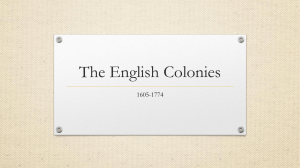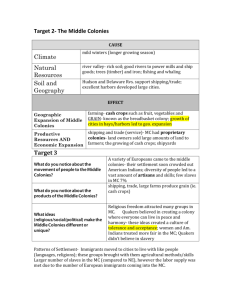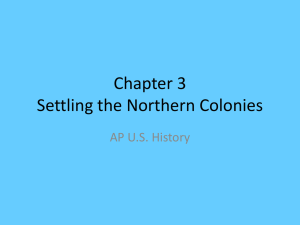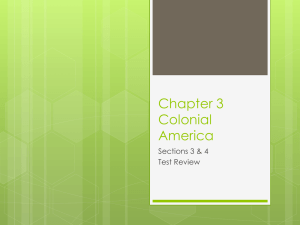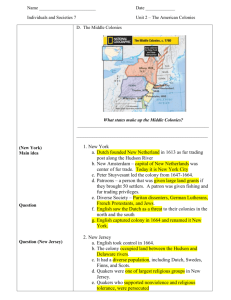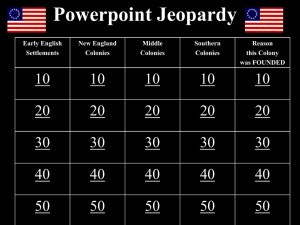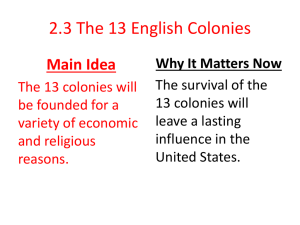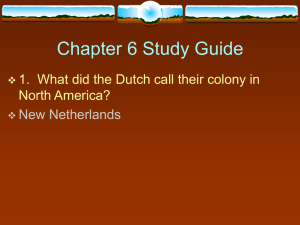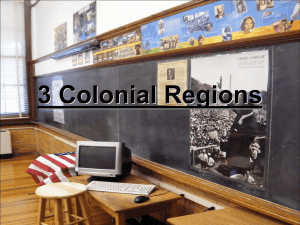Foldable Activity Southern Colonies MD, VA, NC, SC, GA Economic
advertisement
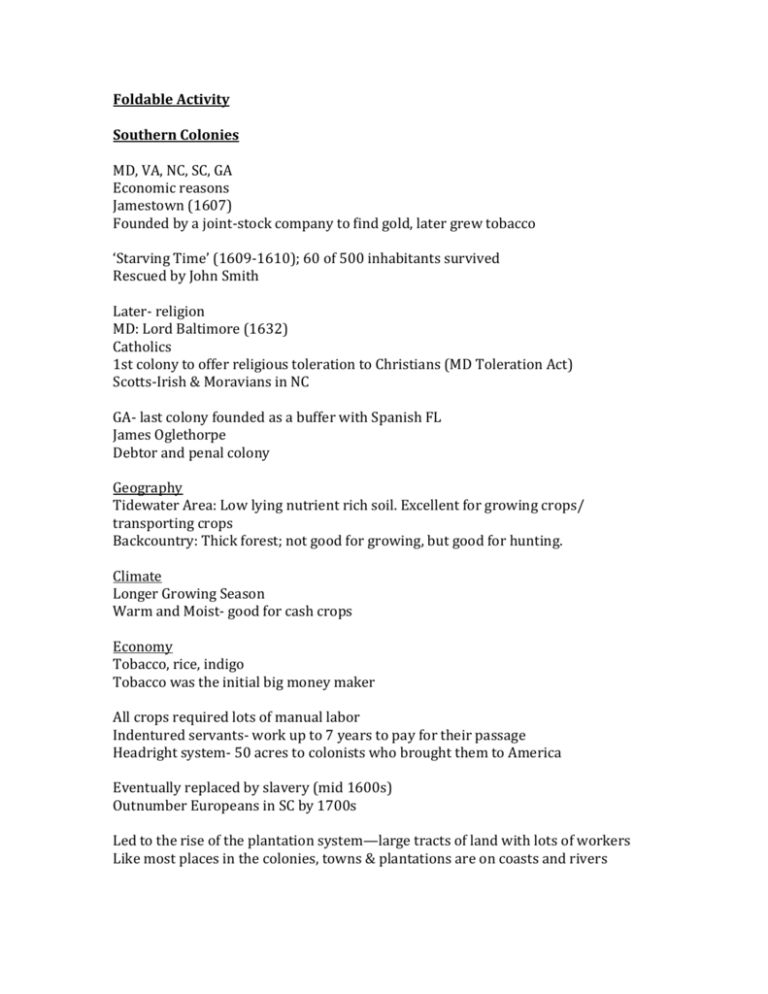
Foldable Activity Southern Colonies MD, VA, NC, SC, GA Economic reasons Jamestown (1607) Founded by a joint-stock company to find gold, later grew tobacco ‘Starving Time’ (1609-1610); 60 of 500 inhabitants survived Rescued by John Smith Later- religion MD: Lord Baltimore (1632) Catholics 1st colony to offer religious toleration to Christians (MD Toleration Act) Scotts-Irish & Moravians in NC GA- last colony founded as a buffer with Spanish FL James Oglethorpe Debtor and penal colony Geography Tidewater Area: Low lying nutrient rich soil. Excellent for growing crops/ transporting crops Backcountry: Thick forest; not good for growing, but good for hunting. Climate Longer Growing Season Warm and Moist- good for cash crops Economy Tobacco, rice, indigo Tobacco was the initial big money maker All crops required lots of manual labor Indentured servants- work up to 7 years to pay for their passage Headright system- 50 acres to colonists who brought them to America Eventually replaced by slavery (mid 1600s) Outnumber Europeans in SC by 1700s Led to the rise of the plantation system—large tracts of land with lots of workers Like most places in the colonies, towns & plantations are on coasts and rivers Middle Colonies PA, DE, NY, NJ PA—William Penn Quakers Lots of religious toleration DE splits off from PA NY- proprietary of the Duke of York Originally took from the Dutch (New Netherland) Gave some to friends and that turned into New Jersey Very diverse region New Amsterdam: Dutch, Germans, French, Scandinavians, African slaves, PA: English, Dutch, Germans, French, Moravians (PA Germans), Scots-Irish Religious groups: Quakers, Lutherans, Jews (1654), Muslims, Presbyterians, Mennonites Eventually, Moravians and Scotts-Irish drift from PA to NC (Winston-Salem and mountains) Climate Long growing season and fertile soil Mild climate- more rain Geography Rivers to transport crops and areas for trade Development of large cities- Philadelphia and New York- industry Economy Farming (wheat “bread basket”), commerce, industry (mines, sawmills), furs Some slaves Skilled craftsmen New England MA, NH, RI, CT Plymouth 1620—founded by Puritans (Pilgrims) Massachusetts Bay Colony (1630)—joint-stock company owned by Puritans Other colonies grow from Massachusetts Bay. Climate and Geography Harsh, cold Less diseases so longer life expectancy Short growing season, rocky soil Economy Shipbuilding, fishing, shipping, commerce, small family farms, few slaves Puritan work ethic New England Life Small towns, held town meetings Literacy very high, including women Harvard, Princeton, and William & Mary all founded to train ministers Taxes establish local schools, beginning of public education Family was key, church kept an eye on family dynamics Stern- idleness was a crime

